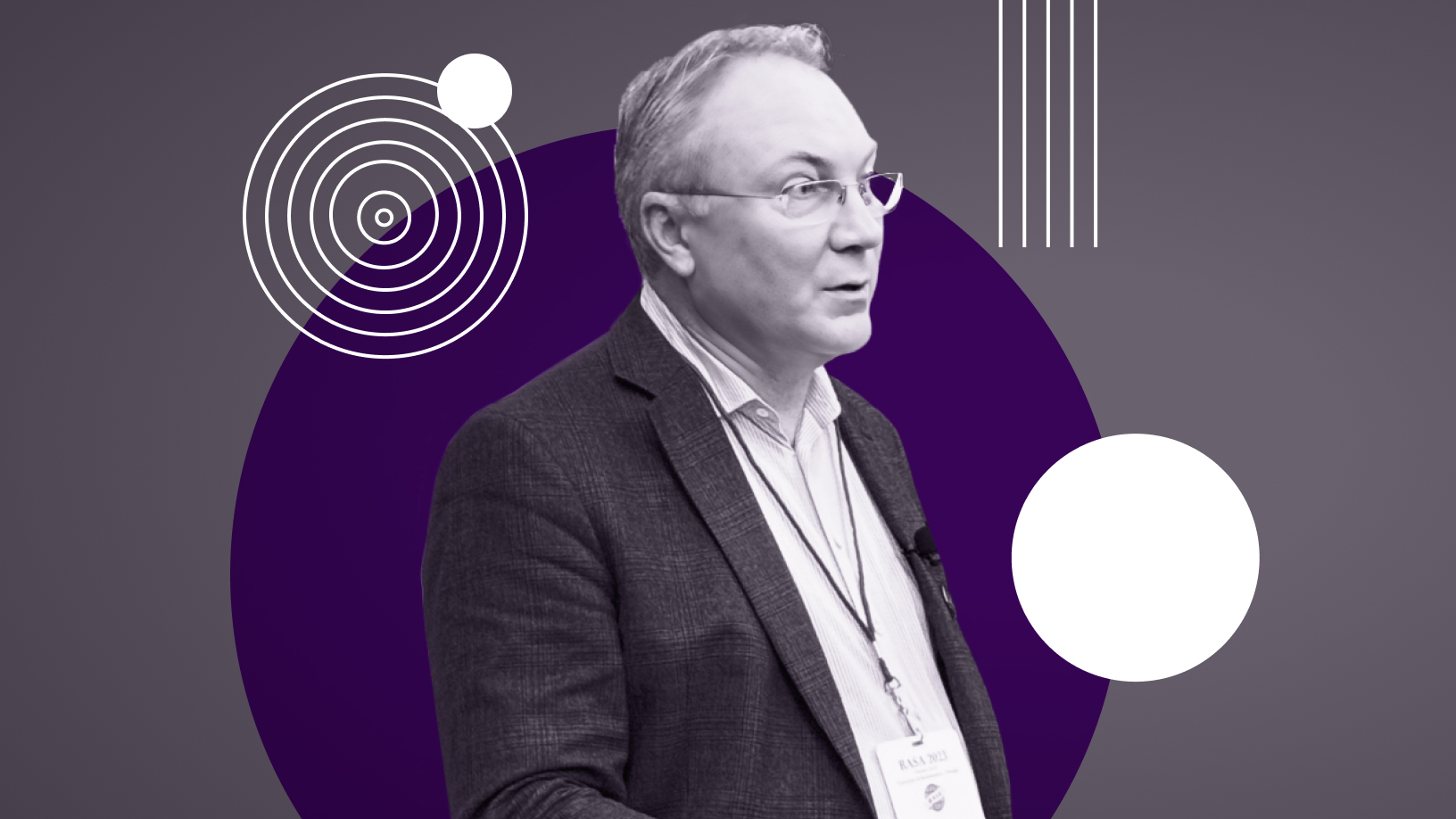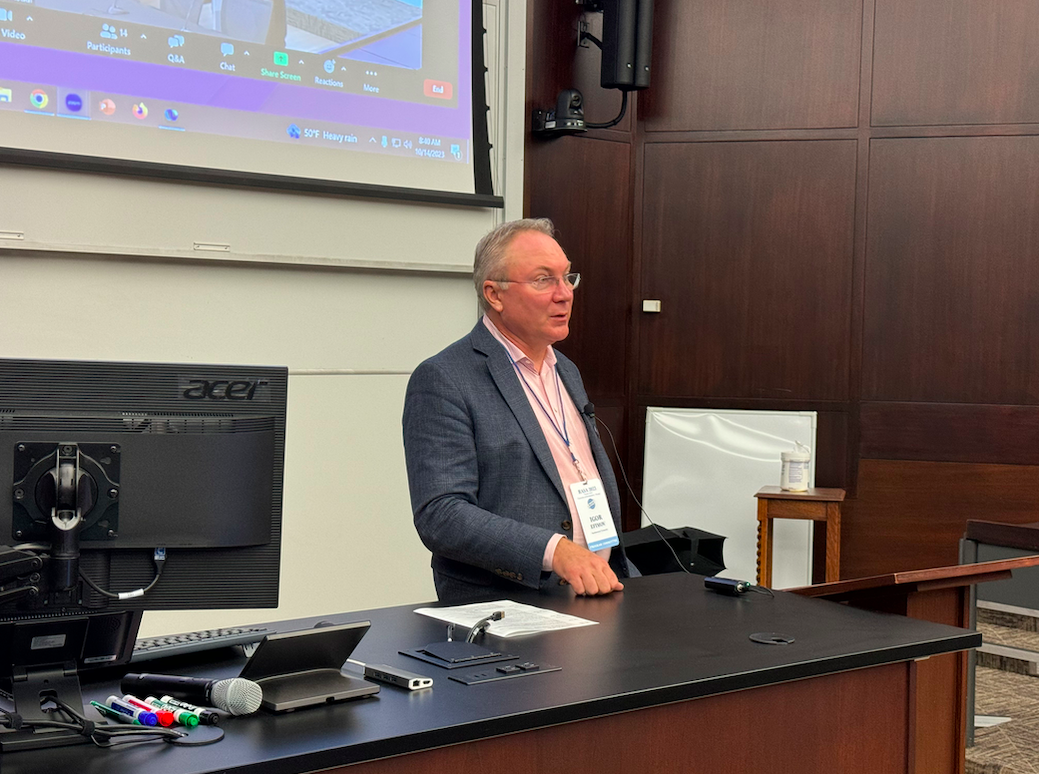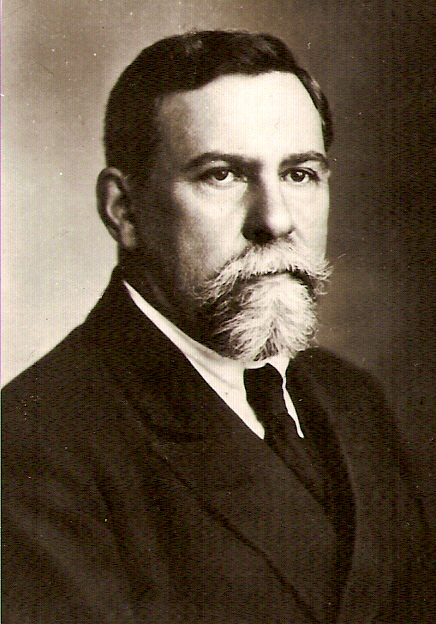
Igor Efimov, professor of biomedical engineering and medicine, has been involved in heart treatment almost all his life, has lived in the USA for more than 30 years and was the first president of the RASA Association. In the last year and a half, the organization has acquired a new, even more important mission – helping scientists from Ukraine and Russia. How Russian-speaking scientists work in America today during the war in Ukraine, why it is important maintain contact with colleagues from the countries of the former USSR; what awaits Russian science after Putin? We talked about these and other topics with Igor Efimov, professor of biomedical engineering and medicine at Northwestern University in Chicago.
HELP:
Igor Efimov was born in Zheleznogorsk, Krasnoyarsk Territory. In 1986 he graduated from the Moscow Institute of Physics and Technology. After graduating from MIPT, he worked at the Institute of Biophysics of the USSR Academy of Sciences and defended his PhD thesis on cardiac biophysics at MIPT. In 1992, he moved to the USA with his family.
He began his career in America at the University of Pittsburgh. Then he worked at the Cleveland Clinic, as well as at the universities of Cleveland, St. Louis, and Washington (DC). Professor Efimov is a member of the National Academy of Inventors and the American Institute of Medicine, an honorary member of several scientific associations. He is also the editor-in-chief of the Journal of Cardiovascular Engineering and Technology.
Dr. Efimov has founded several companies, including Cardialen (2008) to develop low-energy implantable electrotherapy for the treatment of cardiac arrhythmias and NuSera Biosystems (2020) to develop soft wearable and implantable electronic devices. Now Igor Efimov works as a professor of biomedical engineering and medicine at Northwestern University in Chicago.
T-invariant: Igor, the 14th scientific conference for Russian-speaking scientists, organized by RASA. But you were its first president?
Igor Efimov: Yes, I was the first president of this organization. Then I laid down therules that we do not have a second presidential term. That is, the president is elected for two years, and there have been no cases of anyone staying longer than two years. And this is very important, because I know examples of other organizations, I will not point a finger, where, unfortunately, there was irremovability of leadership. Simply, irremovability leads, in general, to stagnation, and organizations actually die. It is unacceptable. Fortunately, I realized this quite early in my career, and we see how the organization has existed practically for 15 years and lives, despite the most difficult times.
 At the RASA conference in Chicago in October 2023. Photo: Denis Cheredov
At the RASA conference in Chicago in October 2023. Photo: Denis Cheredov
T-invariant: My next question is about difficult times. Would you like to see a lot more Russian-speaking scientists at the conference today? Is not it?
IE: Many participants whom we invited in previous years said that with everything where the word “Russian” appears, they don’t want to have anything general. In general, there were such sentiments, unfortunately. And, in particular, and for this reason, we had fewer participants registered than usual, in my opinion, 80 people, if I remember correctly.
T-i: Now we are talking within the walls of Northwestern University in Chicago, where you work. And here, after Russia’s invasion of Ukraine, did you feel that they were somehow wary of Russians?
IE: I don’t feel anything at all. The only thing is, on a personal level, some people would not want to be directly associated with the word “Russian”, especially if they are not from Russia by origin. But from the point of view of the university administration, from the point of view of relationships with other people, professors, students – no, I don’t feel anything like that.
There is a fairly long history of ties with Russia. I mentioned this a little at the opening of the conference. Here, for example, from 1930 to 1952, one of our great chemists, Vladimir Nikolaevich Ipatiev, lived and worked. He made enormous contributions to the development of chemistry, polymer chemistry, high temperature chemistry and catalysis. And he was also one of the main developers of modern methods of oil refining and gasoline production, in ness. He lived here in Chicago, literally two blocks from here. By the way, I just bought an apartment in a house that stands on the very spot where Ipatiev once lived. And, in general, at our university there is a laboratory named after Ipatiev, there is an endowment for a professor named after Ipatiev, and there is the prestigious Ipatiev Medal of the American Chemical Society. That is, in principle, all these traditions exist.
T-i: I congratulate you on your new home, and with such a story!
IE: This is our fourth house in the USA. I have moved several times during my career, because often someone offered me interesting opportunities, and I sometimes agreed. That is, I moved, I lived in five different cities, worked at different universities. And every time you come to new opportunities, you naturally buy a new house, and sell the old one. So I sold a house in Arlington near Washington and bought it here now.
T-i: Let’s go back to the conference. What, in your opinion, is its main feature?
IE: I really liked what Elena Shevchenko said (chemical scientist, works at Argonne National Laboratory – editor’s note). At the beginning of her report, she said that this conference opened her eyes and she became convinced that there are much larger scientific and technological spaces in which one can live and perceive new ideas. Because usually in a traditional scientific career we are focused only on our field of science.
We constantly go to conferences, but they are all only in our region. A little to the side and we don’t understand anything: the language is completely different. We do not have an understanding of the scientific literature of other fields. And in this regard, this kind of conference is unique; it provides an opportunity to look at a very wide range of the universe of knowledge. We saw different reports here: from Tolstoy’s literature to chemistry and high-energy physics. This is very important because it expands intellectual horizons. You begin to understand that scientific thought is much broader than our professional field.
And this is one aspect. And the second aspect is actually how it is passed down from generation to generation. That is, naturally, as I already said, turnover is the only way to survive. When we live, we are immortal, so a change of generations is needed. And in science this is especially important, and in such scientific organizations it is especially important. We have been very lucky this year. The young scientist Eric Rytkin (works in the laboratory of Igor Efimov at Northwestern University in Chicago – editor’s note) made a great contribution to the organization of the RASA conference. In general, in fact, almost all the reports were at a very high level. Fortunately, almost all the reports are understandable to me, because I am a physicist by training and studied high-energy physics. Now I’m doing biomedicine, so I understand this too. I understand spectroscopy and a little chemistry, and am also interested in literature and history, including even writing historical articles. Therefore, in principle, the entire spectrum was very interesting. We, the organizers, asked the speakers to speak in a language understandable beyond their specialty. They, in principle, tried to do this.
T-i: You have a very clear position on the war: you condemn Russia’s full-scale invasion of Ukraine. How do you live here with such a position?
IE: The first thing I will say: my wife is Ukrainian, she is from Poltava, thereforethere are no questions here. And when the war began, naturally, I practicallyinterrupted all contacts with Russia, although before that we had some joint ones. “font-weight: 400;”>projects, for example, on human physiology. All this ended because of the war against Ukraine.
Moreover, what happened in Israel now is absolutely terrible. We also have relatives and friends in Israel. We recently traveled to Israel. And now I’m corresponding with all these friends and relatives, and it’s just creepy what’s happening, because all these friends are mostly younger than me, they have small children, some live right where all these events are happening! One of my good friends told me that several students from her university died, all of them were young… they were killed at this music festival. So it’s very personal.
Naturally, now I am helping, including Ukraine. That is, I gave money to the Armed Forces of Ukraine, I gave money to help people. We have friends and relatives from Ukraine who, in fact, were involved in humanitarian aid in the early stages, when government assistance from the United States and Europe was not yet very developed. That is, we sent humanitarian aid by plane: paid for various equipment, products, and basic necessities.
T-i: And before the war, you often visited Russia?
IE: Yes, of course. I went there regularly, two or three times a year at least. I won’t go there now. It’s just that while this Putin is in power, I have absolutely no intention of going to Russia. Of course, my family remained there. I have a father and brother in Russia, but I personally have nothing material there. I have no apartment, no job, no connections other than family. In this sense, it’s easier for me. But before, I was constantly invited, and I happily went to give lectures on cardiology at universities and at various kinds of cardiology conferences. There were many such conferences in Russia, generally not of a bad level, but now, naturally, it’s all over.
T-i: Can you somehow harm your family with your position?
IE: < /i>At first I had such fear, I actually speak quite harshly publicly and, moreover, I went to the social network VKontakte. In January of this year, I went there and began to actively speak out against the war, for the Armed Forces of Ukraine, and so on. At first, I was afraid that something might happen to my relatives for this.
T-i: Do you feel comfortable here in Chicago?
IE: There is a huge Russian-speaking community here. And the largest Ukrainian-speaking community in the United States. And here is also the largest Polish community in the USA. Of course, maybe there are more Russians in New York, but still. Therefore, Chicago is a very multinational and multilingual city. Today, if you go to the center, you will see protests there. Alexey Navalny has been in prison for 1000 days. And they speak out there almost every Saturday against the war in Ukraine and in defense of political prisoners in Russia. We go there periodically too.

Demonstration in Chicago. Photo: Denis Cheredov
T-i: We told you that after the start of the war, young scientists were the first to leave Russia. Are you sure to be inundated with letters? Do people still want to leave Russia?
IE: Yes! Moreover, before my eyes people arrive who were completely successful by all criteria: doctors, scientists, they all, in general, everyone I knew. Many left, many simply abandoned everything. People who have 20-30 years of experience, say, in cardiology, who have saved probably thousands of lives there, practicing cardiologists, they are now here.
T-i: But the famous heart surgeon Leo Bokeria did not leave…
IE: Bokeria did not leave. But his daughter left long ago. He himself has been retired for a long time, his daughter has been here for a long time. She brought a lot of money here. She lives in Philadelphia, I think, if I’m not mistaken. And somewhere in Miami there is also some activity. Many famous cardiologists in Russia left.
T-i: Probably young scientists write especially often…
IE: They write, they write. But, unfortunately, this is also difficult, because not everyone has open positions. That is, we try to help somehow, but this is not always possible. And they also write from Ukraine, and we also help. But it’s not that simple.
T-i: What will happen to Russian science? So much has been done and then there is war. Will it be possible to restore something?
IE: Look at Germany. When Hitler came to power in 1933, he had only been in power for 12 years. During this time, he completely destroyed German science, which, by the way, had previously been the best in the world, in contrast to Russian science, which had never been the best in the world. In 12 years it was possible to completely destroy this magnificent science. And there are statements by Nobel laureates of German origin who predicted that in just these 12 years the Nazis destroyed everything so much that it would take two generations to bring science to at least some decent level.
But Germany has not yet regained its leadership in science, no matter how many years have passed since 1945. Now German science is of a good world level, but it is far from what it was before the Nazis. Also in Russia, decades will pass after Putin; at least two generations will be needed to reach the world level in science.
This will be a very long time, as shown the experience of Japan, Germany, and Italy, Spain and even Switzerland. How did they restore science? I found this decades after World War II. In all these countries, in order to obtain a professorial position at a national university, for example, for a German to receive a German professorship, or for a Swiss or Japanese to become a professor in his homeland, he had to come to America for a postdoc position and live here for a certain number of years , publish excellent articles from an excellent laboratory, definitely from a leading one. And then he was given a chance to get a good university position in his homeland. I personally know people who have gone through this. This was, of course, 30 years ago. Now this is no longer so relevant, but this is what all post-war reconstruction activities consisted of in these countries. Because in Japan, and in Germany, and in Italy, science was destroyed. And, by the way, in Spain, Franco also destroyed almost everything. But now they have restored science, they are great. They are now experiencing great growth in Spain.
T-i: How do you feel about the Russian scientists who still remain?
IE: Well, it depends on what their position is regarding Putin’s war. There are scientists who remained there, and they have a clear pro-Putin position. I don’t talk to these people, I broke up with them publicly, and I will never shake hands with them.
T-i: Can you name an example? Have you lost, maybe even friends?
IE: Well, crystallographer chemist Artem Oganov is one example. He returned to Russia after the occupation of Crimea, we maintained contacts, we were not friends, but we maintained contacts. He is a good scientist, nothing can be said here. But now he clearly takes a pro-Putin position, and practically no one from our association communicates with him anymore. Fortunately, there are only a few of these in the scientific community.
Conclusion: Northwestern University professor and Russian academician Vladimir Nikolaevich Ipatiev refused to return to the USSR after numerous requests, persuasion and threats from the USSR Academy of Sciences and the Soviet ambassador to USA Troyanovsky. I read a description of these events in the personal archive of academician and Lieutenant General V.N. Ipatiev, located in the library of Northwestern University. For this, he and his friend and colleague chemist Chichibabin in 1936 were deprived of the title of full members of the Academy of Sciences, deprived of USSR citizenship, and received a lifelong ban on coming to their homeland. Ipatiev and his wife never saw their children and grandchildren, who lived in the USSR and were forced to publicly renounce their father. But Ipatiev made a significant contribution to chemistry and to the victory over fascism, developing the best aviation gasoline of those years, on which the planes of all allies in the anti-Hitler coalition flew.

Vladimir Ipatiev. Photo: House of Russian Abroad
How long Putin’s winter and bloodshed will last, no one knows. But the lesson of previous generations of Russian scientists is before us. You need to do your scientific work for the benefit of all humanity, and it will contribute to improving the lives of people and societies of all countries, including democratic Russia and Ukraine, even through generations.
Text: Denis Cheredov
Денис Чередов 15.11.2023

